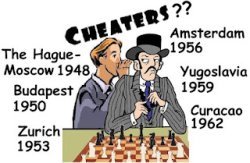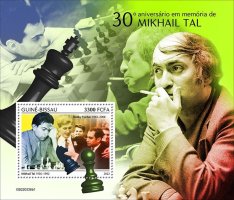
Chess cheating and the Cold War
27.01.2024 08:08 | NewsThe history of chess has seen its fair share of controversies, particularly involving allegations of cheating and collusion among Soviet chess players during the Cold War era. These allegations have sparked considerable debate and analysis over the years.
One of the most notable allegations came from American chess prodigy Bobby Fischer in 1962. Fischer accused Soviet players of colluding at the 1962 Candidates Tournament. He alleged that top Soviet players, including Tigran Petrosian, Paul Keres, and Efim Geller, had prearranged to draw their games against each other, conserving energy for later rounds and ensuring a Soviet victory. This claim was later seemingly supported by Yuri Averbakh, a Soviet team head, who confirmed the existence of a drawing pact in an interview.
Chess during the Cold War wasn't just a game; it was seen as a battleground for ideological supremacy between the Soviet Union and the United States. Soviet domination in chess was perceived as a demonstration of the superiority of their system over the Western capitalist one. Bobby Fischer's victory over Boris Spassky in 1972 temporarily broke this Soviet hold on the World Chess Championship.
Further adding to the complexity of these allegations, a study by economists from Washington University in St. Louis suggested that Soviet chess masters likely engaged in collusion from 1940-1964 to gain an unfair advantage in world chess championships. The study pointed out that the likelihood of a Soviet player winning every single Candidates tournament up to 1963 was significantly higher when the possibility of draw collusion was considered.
The Cold War period and the intense rivalry between the Soviet Union and the United States created an environment where chess was more than a sport. It was an extension of the political and ideological struggle between the two superpowers. The allegations of cheating and collusion in chess during this time reflect the extent to which this competition permeated different aspects of life, including sports and intellectual pursuits.
For more detailed information, you can explore the articles from Sky News here and from Washington University in St. Louis here.


